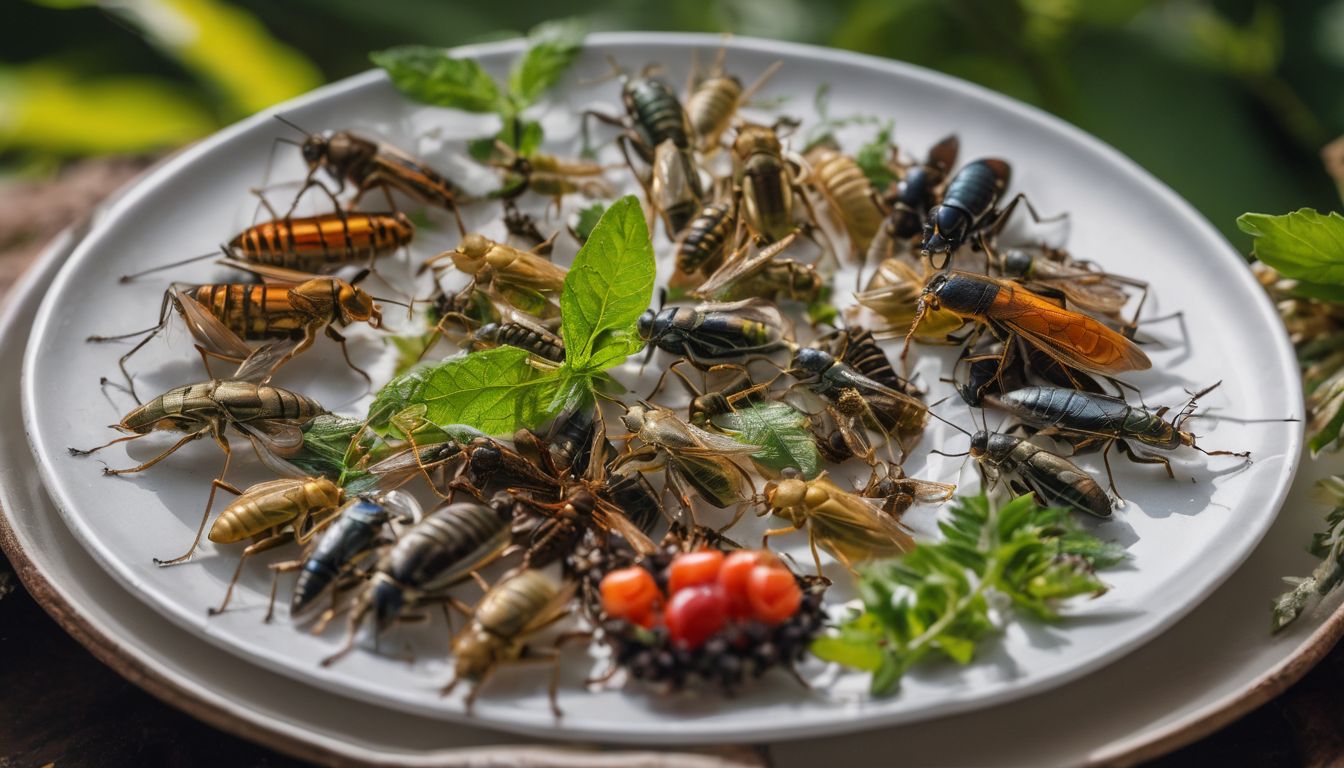Do you worry about staying healthy as you age? Every day, our bodies battle against harmful molecules known as free radicals. This post will explore how antioxidants are vital in fighting diseases caused by these relentless attackers.
Dive in to protect your health!
Understanding Free Radicals and Oxidative Stress
Free radicals are unstable molecules that can cause damage to cells, while oxidative stress occurs when there’s an imbalance between free radicals and antioxidants in the body. Both beneficial and harmful activities of free radicals contribute to various health conditions.
Sources and defense systems
- The environment around us is a significant source of free radicals. Polluted air, cigarette smoke, and sunlight exposure introduce these reactive molecules into our bodies.
- Inside our own cells, free radicals also emerge. Normal metabolic processes like breathing and digesting food produce them as byproducts.
- Antioxidants serve as our primary line of defence against the damaging effects of free radicals. They donate electrons to stabilise these reactive species without becoming destabilised themselves.
- Certain foods are powerhouse providers of antioxidants. Eating a diet rich in fruits and vegetables supplies your body with vitamins C and E, which are potent antioxidants.
- Our bodies produce antioxidant enzymes naturally. Glutathione peroxidase and superoxide dismutase help dismantle free radicals before they wreak havoc on cellular components.
- Physical activity enhances the body’s ability to fight oxidative stress. Exercise stimulates the production of internal antioxidants, bolstering our defence mechanisms.
- While some antioxidant defences are innate, others require nutrients from our diet or supplements to function effectively.
- Stress management plays a critical role in combating oxidative stress. High levels of psychological stress can weaken the immune system, making it harder for the body to fend off cell damage from free radicals.
Beneficial and deleterious activities
Antioxidants play a crucial role in the body by neutralising free radicals, which can cause cellular damage. They also help to boost the immune system and protect against chronic diseases such as cancer and cardiovascular disease.
However, excessive antioxidant intake may interfere with certain beneficial activities of free radicals, such as their role in signalling pathways that regulate cell growth and death.
Furthermore, while antioxidants are essential for scavenging reactive oxygen species to prevent oxidative stress-related damage, they might hinder some necessary deleterious activities of free radicals that are important for combating infections and destroying abnormal cells.
Oxidative Stress and Disease
Oxidative stress is linked to various diseases such as cancer, cardiovascular disease, neurological disease, pulmonary disease, rheumatoid arthritis, nephropathy, ocular disease, and even fetal health.
Understanding the impact of oxidative stress on these conditions can highlight the importance of antioxidants in prevention and management.
Cancer
Oxidative stress has been linked to the development and progression of cancer. Free radicals, formed during normal cellular processes or due to external factors like tobacco smoke and radiation, can damage DNA and lead to mutations that promote the growth of cancer cells.
Antioxidants play a crucial role in preventing such damage by neutralising free radicals, protecting cells from oxidative stress and reducing the risk of developing cancer.
Research suggests that consuming a diet rich in antioxidant-containing foods, such as fruits, vegetables, whole grains, and nuts, may help lower the risk of certain types of cancers.
Cardiovascular disease
Cardiovascular disease, including heart attack and stroke, is linked to oxidative stress. Free radicals can damage the cells that line blood vessels and contribute to arterial plaque buildup.
Antioxidants in fruits, vegetables, and whole grains can help reduce inflammation in arteries and may improve overall heart health. Consuming a diet rich in antioxidants may play a protective role against cardiovascular disease by counteracting oxidative stress and promoting healthy circulation.
Research suggests that antioxidant-rich foods such as berries, nuts, leafy greens, and seeds can support cardiovascular health by neutralising harmful free radicals within the body.
Additionally, certain antioxidant vitamins like vitamin E and C have been studied for their potential benefits in reducing the risk of heart disease due to their ability to combat oxidative stress.
Neurological disease
Neurological disease, such as Alzheimer’s and Parkinson’s, can significantly impact cognitive function and quality of life. Oxidative stress has been implicated in the progression of these conditions, leading to nerve cell damage and accelerating cognitive decline.
Antioxidants play a crucial role in protecting against neurological disease by neutralizing free radicals and reducing oxidative stress in the brain. Studies suggest that a diet rich in antioxidant nutrients, along with targeted supplementation, may help slow down the aging process and reduce the risk of developing chronic neurodegenerative conditions.
Furthermore, emerging research highlights the importance of nutrition and health choices in preventing cognitive decline. A focus on dietary antioxidants offers promising potential for supporting brain function and minimizing the impact of neurological diseases.
Pulmonary disease
Pulmonary disease, including conditions such as asthma, chronic obstructive pulmonary disease (COPD), and lung cancer, can be influenced by oxidative stress. Environmental pollutants and cigarette smoke generate free radicals that cause inflammation and damage to the lungs.
Antioxidants play a significant role in protecting against this oxidative damage, supporting lung health through their ability to neutralize free radicals. Consuming a diet rich in antioxidant nutrients like vitamins C and E, selenium, and flavonoids can help reduce the risk of developing pulmonary diseases.
Furthermore, incorporating antioxidant-rich foods such as berries, nuts, seeds, and leafy greens into your diet supports overall respiratory health.
Rheumatoid arthritis
Rheumatoid arthritis, a chronic autoimmune disease, causes inflammation and pain in the joints. Antioxidants play a crucial role in managing this condition by reducing oxidative stress and inflammation.
Research suggests that antioxidants found in fruits, vegetables, and nuts can help protect against joint damage and improve overall function for individuals with rheumatoid arthritis.
Consuming a diet rich in antioxidants such as vitamins A, C, and E may support joint health and alleviate symptoms of rheumatoid arthritis. Additionally, incorporating antioxidant-rich foods into your daily meals can contribute to overall well-being while aiding in the management of this chronic condition.
Ocular disease
Ocular disease can result from oxidative stress damaging the eye’s cells and tissues. It may lead to vision problems, including cataracts, age-related macular degeneration (AMD), and glaucoma.
These conditions are linked to free radical-induced inflammation, which antioxidants help combat. Nutrient antioxidants such as vitamin C, E, and zinc play a crucial role in protecting the eyes from oxidative damage caused by exposure to sunlight or air pollution.
Research indicates that dietary intake of antioxidant-rich foods like leafy greens, carrots, and berries can reduce the risk of developing ocular diseases. Therefore, incorporating these foods into your diet can contribute to maintaining optimal eye health.https://www.youtube.com/watch?v=gzRjufRcyD8
Classification and process
Antioxidants are classified into different groups based on their solubility in water and fat. Water-soluble antioxidants, such as vitamin C and polyphenols, work in the watery part of cells to fight free radicals.
Fat-soluble antioxidants like vitamin E and beta-carotene protect cell membranes from oxidative damage.
The process of antioxidant action involves neutralising free radicals by donating an electron without becoming destabilised themselves. This prevents the harmful chain reactions caused by these unstable molecules, reducing oxidative stress in the body.
Nutrient antioxidants
Nutrient antioxidants are vitamins and minerals that help protect our cells from damage caused by free radicals. These include vitamins A, C, and E, as well as minerals like selenium and zinc.
- Vitamin A: Found in foods like sweet potatoes, carrots, and spinach, vitamin A helps to support healthy vision and a strong immune system.
- Vitamin C: This powerful antioxidant is abundant in citrus fruits, strawberries, bell peppers, and broccoli. It plays a crucial role in collagen formation and immune function.
- Vitamin E: Nuts, seeds, and vegetable oils are excellent sources of vitamin E. It helps to protect cell membranes from oxidative damage.
- Selenium: Found in Brazil nuts, fish, and eggs, selenium is important for thyroid function and helps to protect against oxidative stress.
- Zinc: Foods such as oysters, beef, and legumes contain zinc, which supports immune function and helps with wound healing.
Current Research on Antioxidants and Disease Prevention
Research on antioxidants and disease prevention is ongoing, with conflicting evidence that underscores the importance of proper intake. It’s crucial to stay updated on the latest findings for optimal health care.
Conflicting evidence
Research on the effectiveness of antioxidants in preventing diseases has produced conflicting evidence. Some studies suggest that antioxidants, such as vitamins C and E, may help reduce the risk of certain diseases like cancer and cardiovascular disease.
However, other research indicates that high-dose antioxidant supplementation could potentially interfere with natural physiological processes and even promote tumour growth in some cases, suggesting a more complex relationship between antioxidant intake and disease prevention.
Furthermore, recent studies have shown that the effectiveness of antioxidant supplements may depend on individual genetic variations, making it crucial to consider personalised nutrition approaches when discussing disease prevention strategies.
Understanding these nuances is essential for making informed decisions about incorporating antioxidant-rich foods or supplements into your diet to support overall health while minimising potential risks.
Importance of proper intake
Despite conflicting evidence, understanding the importance of proper intake of antioxidants is crucial for preventing oxidative stress-related diseases. A diet rich in nutrient antioxidants such as vitamin C, E, and beta-carotene from fruits, vegetables, nuts, and seeds can significantly contribute to disease prevention.
Additionally, supplementation may be necessary for individuals with limited access to a variety of fresh produce or those with specific health conditions that increase their antioxidant needs.
Maintaining an adequate intake of antioxidants through a balanced and diverse diet can potentially reduce the risk of cancer, cardiovascular disease, neurological disorders, pulmonary issues, rheumatoid arthritis and nephropathy.
FAQs
1. What are antioxidants and how do they help prevent disease?
Antioxidants are substances that protect our cells against damage and may reduce the risk of diseases, including some types of cancer.
2. Can eating foods rich in antioxidants help with disease prevention?
Yes, a diet high in antioxidant-rich foods contributes to your overall nutrition and can aid in preventing various diseases.
3. Are there specific diseases that antioxidants can help prevent?
Antioxidants play a role in cancer prevention by protecting cells from damage and may also help prevent other chronic diseases linked with oxidative stress.
4. How can I include more antioxidants in my diet?
You can increase your intake of antioxidants by adding a variety of fruits, vegetables, nuts, and whole grains to your daily diet for better nutrition.





